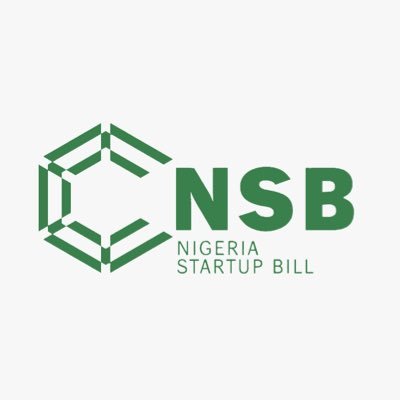There is no doubt that Nigeria’s Start up eco system has grown tremendously over the years and is fast becoming a force to reckon with both within and outside Africa. Thus, it became necessary for the Federal Government to harness this growth.
The Nigeria Startup Bill 2021 was thus transmitted to the Nigerian National Assembly in October 2021. The Bill is described as an initiative by the Nigerian Tech start up system and the Federal Government to harness the potential of our digital economy through co-created regulations.[i] This Bill was passed by the Nigerian Senate on Wednesday, July 20, 2022 and currently awaiting the President’s assent.
The essence of this Bill, is to ensure that Nigeria’s laws and regulations on the tech eco system are clear, planned and work for the tech eco system. With the ultimate goal being to create an enabling environment for the establishment, development and operation of the Startup eco system.
Notable Provisions/Incentives of the Startup Bill
- Nationality of the Company: The Bill proposes that the Company must be in Nigeria and have its headquarters in Nigeria and must not have been in existence for more than 10 years.
- Objective of the Company: The Bill provides a plethora of objects which includes innovation, development, production, improvement or commercialization of an innovative product.
- Shareholding of the Company: The Bill provides that at least 51% of the shares must be held by a Nigerian. This is commendable as it will promote Nigerian inclusion in foreign owned startups. However, companies with more than 49% foreign participation are still eligible, where the beneficiaries of its corporate shareholders are Nigerian citizens.
- Expenses of the Company: The Bill provides that at least 15% of the expenses of the startup must be distributed to research and development activities.
- One Stop Shop Centre (OSSC): The Bill requires companies that meet the eligibility criteria to apply for registration with OSSC to be eligible for the incentives contained in the Bill[ii].
- The Council: The Bill proposes the establishment of the National Council for Digital Innovation and Entrepreneurship (“Council”) which will be responsible for collaborating with various regulatory bodies to ensure the provision of support services and incentives to the Startups.
- Funding: The Bill proposes the establishment of a Startup Investment Seed Fund to provide funding to early-stage Startups for aiming to scale, establish talent development programmes and meet the criteria set by the Council.[iii]
- Engagement Portal: The Bill requires eligible startups to register with the OSSC through an engagement portal called the OSSC Portal, which will serve as a platform for interaction and enables stakeholders in the startup ecosystem to interface.
- Provision of regulatory support by the OSSC: To reduce regulatory hurdles currently faced by Startups, relevant regulators including the CAC, Trademarks, Patent and Design Registry, CBN, NOTAP (“Regulators”) are to set up help desks at the OSSC with appropriate personnel; and to provide support to Startups through the OSSC Portal.
- Tax incentives: The Bill proposes tax incentives such as:
- tax exemption on Startups profit for 7 years
- reduced Value Added Tax rate at 3% on goods and services supplied by Startups
- provision of tax credit to Startups with the condition that they create a minimum number of jobs (this minimum number will be determined by the Council);
- tax incentives to employees of startups and investors in startups
- Discounts: Regulators will be required to grant discounts on their licensing /registration fees to Startups.
- License Applications for Fintech Startups: The Bill requires the CBN and SEC to ensure that the license application process for Startups is expedited and seamless. The Bill, however, does not provide clarity as to how this will be achieved or how to measure the effectiveness of the regulators in this area.[iv]
- Procurement of Technology-related goods and services by government parastatals: The Bill proposes that Ministries, Departments and Agencies of the Government set a 15% margin of preference in favour of Startups when procuring technology related products.[v]
CONCLUSION
While the enactment of a Startup Law is not novel to countries in the world, in Africa, only two countries have enacted a Startup Law, namely Tunisia and Senegal. However, several other Africa countries have made conscious effort to provide a legislation including Ghana, Uganda and Nigeria.
The Nigeria Startup bill is a commendable effort by the government to provide an enabling environment for Startups in Nigeria. The Bill has gathered feedback from several elements of the IT sector and the Government.
Despite the fact that the proposed legislation might not provide solutions for all of the obstacles that the average digital startup faces, it does offer practical remedies for concerns like incorporation, finance, licensing, growth, operations and exits.
The Lagos State Government has said it will domesticate Nigeria Startup Bill in the state to fast-track the growth of the startup ecosystem in the country.
We anticipate the transition of this Bill into Law, as it will greatly enhance the startup eco system in Nigeria, especially if same is adopted by all the states in the Country.
[i] https://startupbill.ng accessed on July 4, 2022
[ii] https://www.mondaq.com/nigeria/corporate-and-company-law/1140928/the-nigerian-startup-bill accessed on July 7, 2022
[iii] Nigerian startups bill and the regulatory framework, By Inyene Ibanga https://www.premiumtimesng.com/opinion/495348-nigerian-startups-bill-and-the-regulatory-framework-by-inyene-ibanga.html accessed on July 4, 2022
[iv] https://www.mondaq.com/nigeria/corporate-and-company-law/1140928/the-nigerian-startup-bill accessed on July 7, 2022
[v] ibid
Written by Chiamaka Daniella Ogbonnaya for The Trusted Advisors
Email us: [email protected]

